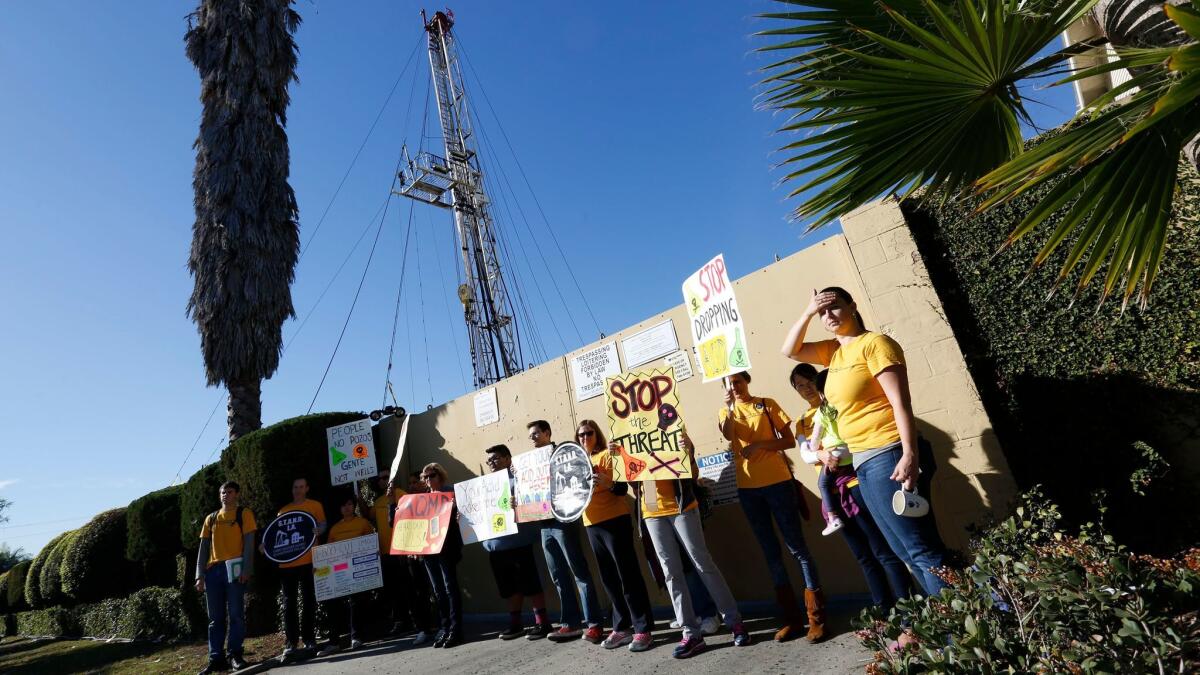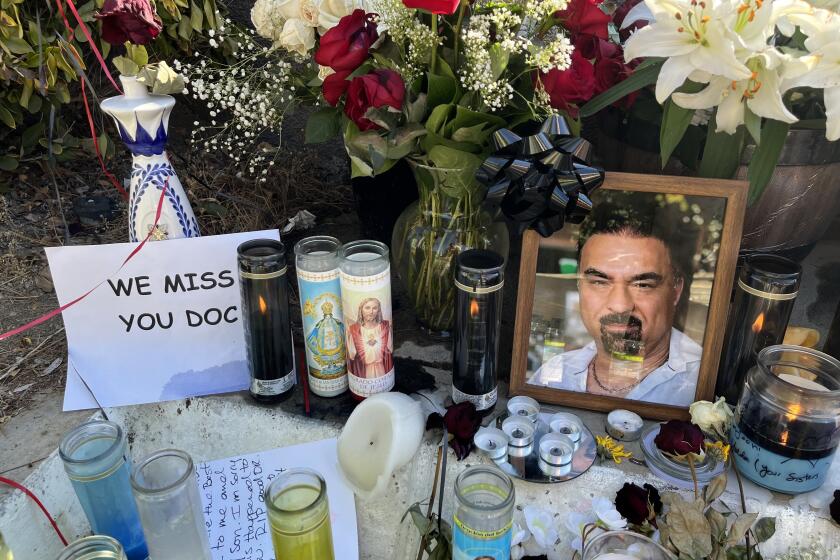South L.A. commission backs stiff new rules for oil site near USC

A South Los Angeles commission upheld city demands Tuesday night to stiffen rules for an oil production site that sits next to homes, overriding objections from the company that runs the Jefferson Boulevard facility.
“We all can appreciate the importance of oil and gas … but I don’t think it should be at the expense of residents near a site such as this,” Eric Bates, president of the South Los Angeles Area Planning Commission, said before the unanimous vote.
Last year, Los Angeles imposed stringent new rules for operating the Jefferson Boulevard site, including a 45-foot-tall enclosure to muffle noise and reduce odors and monitoring systems to track noise and detect noxious fumes.
The rules, described by officials as the toughest requirements for any oil drilling or production site in the city, were backed by environmental and community activists who had complained about foul smells and thundering noises from a facility that sits immediately next to apartments.
Sentinel Peak Resources, which took over the Jefferson Boulevard site more than a year ago, lodged an appeal, arguing that the new rules were impractical, interfered with its legal rights and “are not based on proof of violations or verifiable, ongoing nuisance.”
At the Tuesday night hearing, attorney Nicki Carlsen, who represents the company, told commissioners that they could not impose new rules based on “unsubstantiated complaints.”
“The facts here don’t support these new conditions” for running the facility, Carlsen said.
The company rejected many of the claims made by the city and disputed the idea that new or tighter requirements are warranted. Christine Halley, its director of environmental health and safety, said the company had been “neighborly,” citing a tidy wall and landscaping around the facility.
Putting up a 45-foot enclosure would end up forcing the relocation of overhead power and telephone lines, necessitate the removal of the landscaping, and could also trigger the relocation of underground utilities, the company warned in a letter. Halley added that it would be “grossly out of scale with the character of the neighborhood.”
The South Los Angeles Area Planning Commission, whose members are selected by Mayor Eric Garcetti, voted unanimously against the appeal. The decision followed emotional testimony from neighbors who complained about noise and odors, and raised concerns about chemicals used at the site.
“Whatever they say about being a good neighbor ... I’m right there. I can see it from my front door,” said Hamilton Yang, who lives near the facility. Yang said that “even with all the doors and windows closed, the noise is overwhelming to the point of waking me up when I’m in the room furthest from the drill site.”
The Center for Biological Diversity, an environmental nonprofit, argued that there was ample evidence that the Jefferson Boulevard site had menaced neighbors and that some of the same requirements had already been imposed at other facilities that were farther from homes or schools. During his presentation, city zoning official Theodore Irving displayed photos of Westside oil sites that had been enclosed in structures.
“If we don’t impose these conditions, if we don’t abide by them, what you heard from the community will persist,” Irving told the commissioners before their vote.
The decision cannot be appealed further, according to planning officials, although City Council members have the power to override commission decisions if they choose.
Following the vote, Halley said that she was disappointed and that “the city can expect a strong legal response from us.”
The Jefferson Boulevard site has been a rallying point for activists who argue that oil and gas drilling has no place in urban neighborhoods. It has been operating for more than half a century and sits closer to homes and other sensitive sites than any other drill site in Los Angeles, according to a study by the nonprofit Community Health Councils.
L.A. has stepped up its scrutiny of oil and gas production by hiring a petroleum czar, but environmental groups have pressed for the city to go further, arguing that it should ban drilling near homes and schools to protect the health and safety of residents.
Oil industry groups such as the California Independent Petroleum Assn. have argued that such restrictions would eliminate jobs, cut tax revenue and ultimately make the country more reliant on energy from other nations with scant environmental protections.
Twitter: @AlpertReyes
More to Read
Sign up for Essential California
The most important California stories and recommendations in your inbox every morning.
You may occasionally receive promotional content from the Los Angeles Times.











